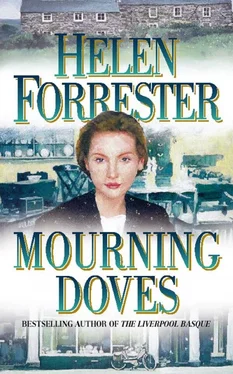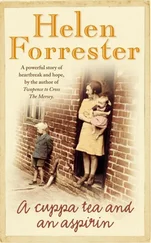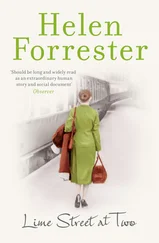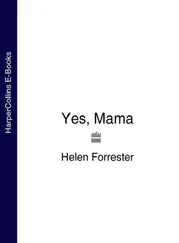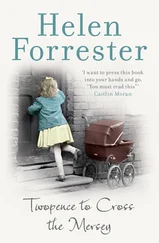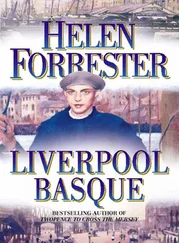‘Do you have any idea how much is in your banking account?’ Celia knew that her grandfather had settled on her mother a dowry – a dot, as such a settlement was popularly called – of rental housing in Birkenhead. It was doubtful whether the income from their small rents would be enough to tide them over, never mind pay for extensive repairs to this dismal house.
‘I don’t know how much. I will have to ask the bank manager – and Mr Billings.’
‘The agent who collected the rent for this cottage and manages your Birkenhead property?’
‘Yes, dear. Cousin Albert says I am lucky that, when I married, your grandfather made quite sure that that property always remained mine.’
At the mention of Mr Billings, some of Celia’s fear receded. Mr Billings would surely know how to deal with house repairs. He might know how they could obtain credit so that they did not have to pay immediately.
As she searched in her leather handbag for the key to the house, handed to her by Cousin Albert, who had found it, neatly labelled, in Timothy’s key cupboard in his office, she said with false cheerfulness to her mother, ‘Let’s go inside. It may not be so dreadful as we think. Then, instead of going directly back home to Liverpool, we could pause long enough in Birkenhead to see Mr Billings; he’ll know something about house repairs, I’m sure. We can take a later train back to Liverpool.’
‘Well, I suppose,’ Louise whispered wearily, ‘since we are here, we might as well look at the inside.’
As Celia slowly turned the big iron key in the rusty lock, Louise paused to look round what had been the front garden, and sighed deeply at the sight of the foot-high weeds. She sobbed again into her large, black mourning handkerchief, one of the same set of handkerchiefs she had used when crying for her lost boys.
Celia’s hand was trembling as she put the big key back into her handbag, before pushing hard on the stiff door to open it. What will become of us? she fretted. What shall we do?
Nineteen twenty was supposed to be a year when, two years after the war, things would settle down and life return to normal. Mourning was supposed to be over, your black dresses put away. But you can’t bury grief as quickly as you can bury men, she thought bitterly.
At best, life was proving to be totally different from that of 1914, when during a gloriously hot August, Europe was plunged into war, and life’s main preoccupation became the casualty lists.
Added to the death of her sons, her poor mother now had this burden of comparatively early widowhood, a penurious one, and the loss of her superbly furnished home.
As she pushed hard at the reluctant door, she thought for a moment of herself, and she saw no hope of a decent future anywhere.
As the door swung open to reveal a tiny vestibule, decayed autumn leaves rustled across a dusty tiled floor. Facing them was an inner door, its upper panels consisting of a stained-glass window with an elaborate pattern of morning glory flowers.
In an effort to cheer her mother up a little, Celia exclaimed, ‘Wouldn’t that be pretty if it were cleaned?’
‘Mother loved it,’ Louise said abruptly. Because her nose was so swollen from weeping, she sounded as if she had a heavy cold.
Using the same key, Celia unlocked the pretty door and hesitantly opened it. She had never been in the cottage before, and did not know exactly what to expect.
A very narrow, gloomy hall was revealed. It was poorly lit by a window at the top of a steep staircase to her right. To the left of her, two doors led off the hall. At the back was a third door. The lower half of all the walls was painted brown; the upper half looked as if it had once been cream. It was, however, very dirty; every corner was hung with cobwebs, and dust clung to them. Dust lay thickly on the wooden banister of the stairs, on the bare wooden treads, and on the ridges of the door panels. Under their feet fine sand, blown in from the dunes at the back of the house, crunched faintly on reddish tiles.
Celia quickly flung open the two doors and they glanced in at tiny rooms which looked equally dirty and depressing, their fireplaces choked with ashes, the bare wooden floors grimy and littered with bits of yellowed newspaper. The light from the windows, filtering through gaps in the boards hammered over their exterior, did little to lift the general air of dinginess.
Determined to be brave, Celia said to her mother, again steeped in melancholy, ‘They’ve both got fireplaces – and quite big windows.’
Louise did not reply. She was past caring.
She did, however, follow Celia, as the younger woman approached the door at the end of the hallway, which she presumed correctly would lead into some sort of a kitchen.
A very rusty range had been built into one wall. With a long-handled water pump at one end, a sandstone sink was set below a filthy casement window positioned high in the house’s end wall. Through the window Celia caught a glimpse of the straggling tops of hedges which she supposed marked the edge of the property.
Cautiously she pressed down the pump handle. It gave a fearsome squeak, but no water came out.
Her mother stared at it, and then said heavily, ‘It has to be primed and it’s probably rusted inside.’ After a pause while she dabbed at her reddened nose, she added, ‘There’s a well at the bottom of the garden.’
Celia was appalled. The kitchen was awful, filthy beyond anything she had ever seen before. How on earth could one ever get such a neglected house clean – without a couple of skilled charwomen? But Cousin Albert had said no servants.
She realised with real shock that, if they did come to live in it, she herself would have to clean it. Her mother would not dream of doing an unpleasant job while she had a daughter to push it on to, and Celia had no idea even how to start.
She swallowed, and opened another door. ‘This must be the pantry,’ she said. ‘Phew! How it smells!’
Because there was a sudden scuffle of tiny feet in its confined space, she hastily slammed the door shut again. ‘Ugh!’
‘Mice!’ her mother burst out. ‘Oh, Celia!’ She hastily gathered her skirts up to her knees, as if expecting an immediate invasion of her petticoats by the tiny intruders. Tears ran down her face.
‘It’s all right, Mother. It’s all right! I don’t think any came out.’ Celia turned back to the hallway, and suggested heavily, ‘We’d better have a look upstairs.’
There were three small bedrooms, and, in addition, a very tiny room at the front, over the hallway, which Louise said, with an effort, had been her elder sister’s bedroom when they were children. It was in the latter that the window had been broken. Rain had got in and damaged the plaster. Under their feet brown linoleum squelched as they trod on it, indicating that there was water under it.
‘Pooh!’ exclaimed Celia. ‘This room reeks of damp.’
Her mother blew her nose, and said very wearily, ‘The floorboards have probably rotted.’
Celia nodded. She wondered, with a shiver, if they would ever have enough money, never mind enough strength, to put this tiny house into some sort of order. Cousin Albert must believe that it was possible, she decided.
In fact, Albert Gilmore had not thought the matter through very well. His main goal was to avoid having to take the two bereaved women into his own home in Nottingham, where he dwelled very happily with an obliging manservant. He did not want them there even temporarily – they might be hard to dislodge.
He hoped that they would agree to settle in the cottage, or, alternatively, go to live with Louise’s elder, married daughter, Edna, and her husband, Paul Fellowes, something he had not yet suggested to either lady – he felt that the latter idea must come from Paul and Edna, and was, in his opinion, a decision of last resort. In the meantime, he had pressed on Louise the idea of the cottage as a suitable home.
Читать дальше
